Japan has so many vacant homes it's giving them away
Four years ago, Naoko and Takayuki Ida were given a house. For free.
It's a spacious, two-story home nestled amid trees on a winding country road in the small town of Okutama, in Tokyo prefecture. Before moving, the couple and their children -- two teenagers and a five-year-old -- were all living with Naoko's parents.
"We had to do a lot of repair work (on our new home), but we'd always wanted to live in the countryside and have a big garden," said Naoko, 45.
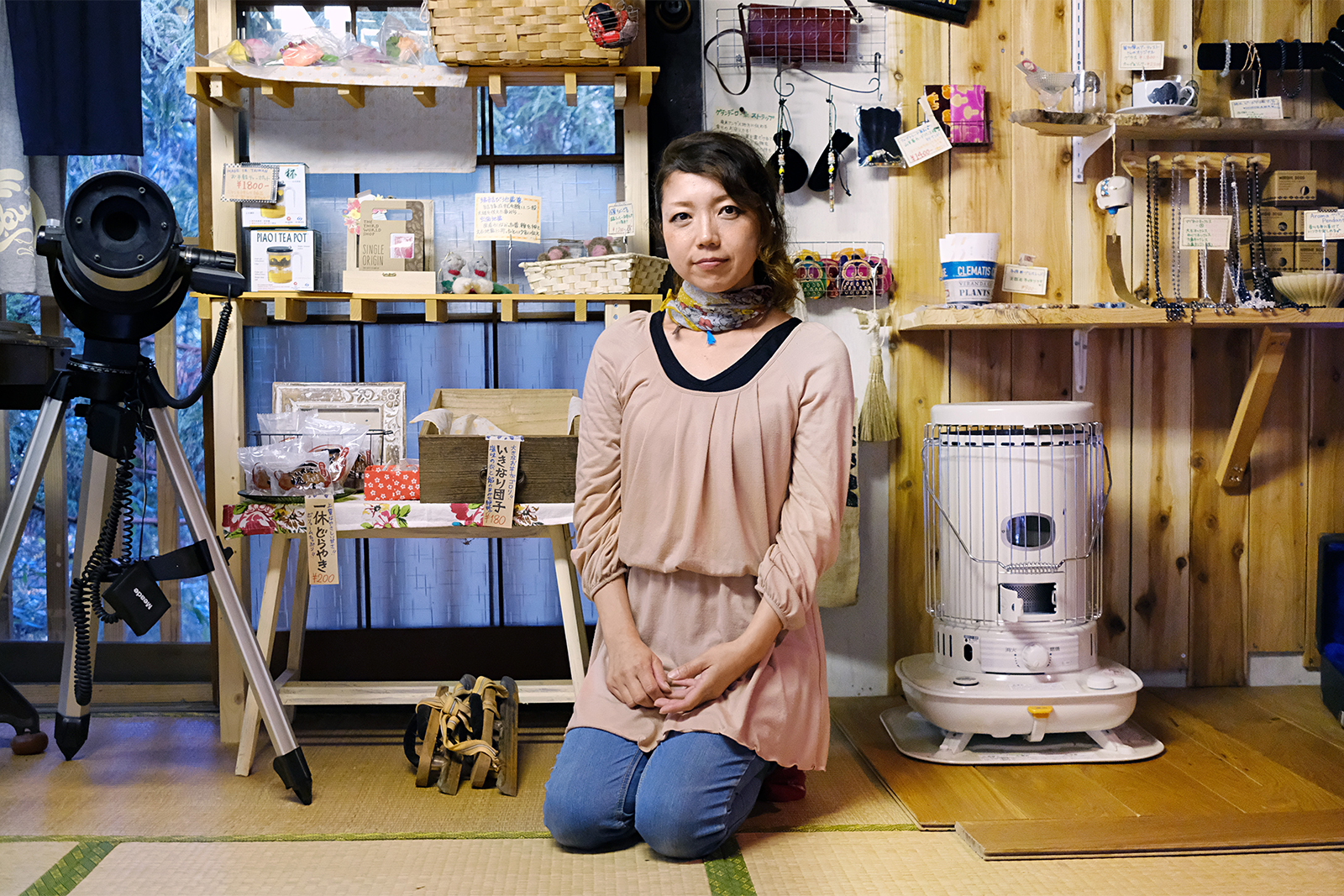
A free house may sound like a scam. But Japan faces an unusual property problem: it has more homes than people to live in them.
In 2013, there were 61 million houses and 52 million households, according to the Japan Policy Forum. And the situation is poised to get worse.
Japan's population is expected to decline from 127 million to about 88 million by 2065, according to the National Institute of Population and Social Security,meaning even fewer people will need houses. As young people leave rural areas for city jobs, Japan's countryside has become haunted by deserted "ghost" houses, known as "akiya."
It's predicted that by 2040, nearly 900 towns and villages across Japan will no longer exist -- and Okutama is one of them. In that context, giving away property is a bid for survival.
"In 2014, we discovered that Okutama was one of three Tokyo (prefecture) townsexpected to vanish by 2040," says Kazutaka Niijima, an official with the Okutama Youth Revitalization (OYR) department, a government body set up to repopulate the town.
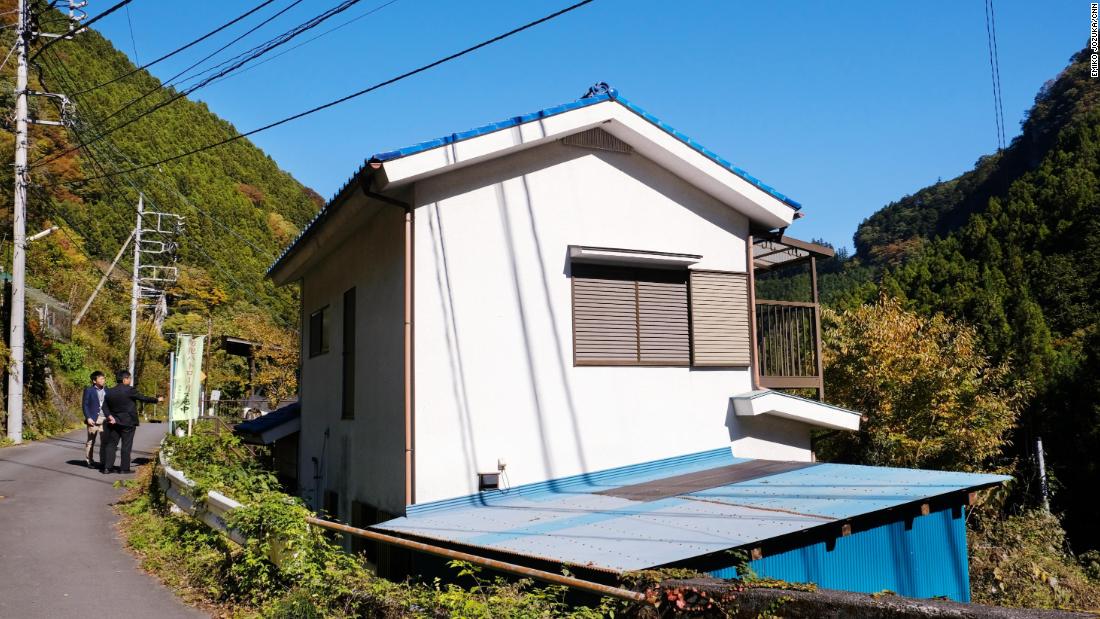
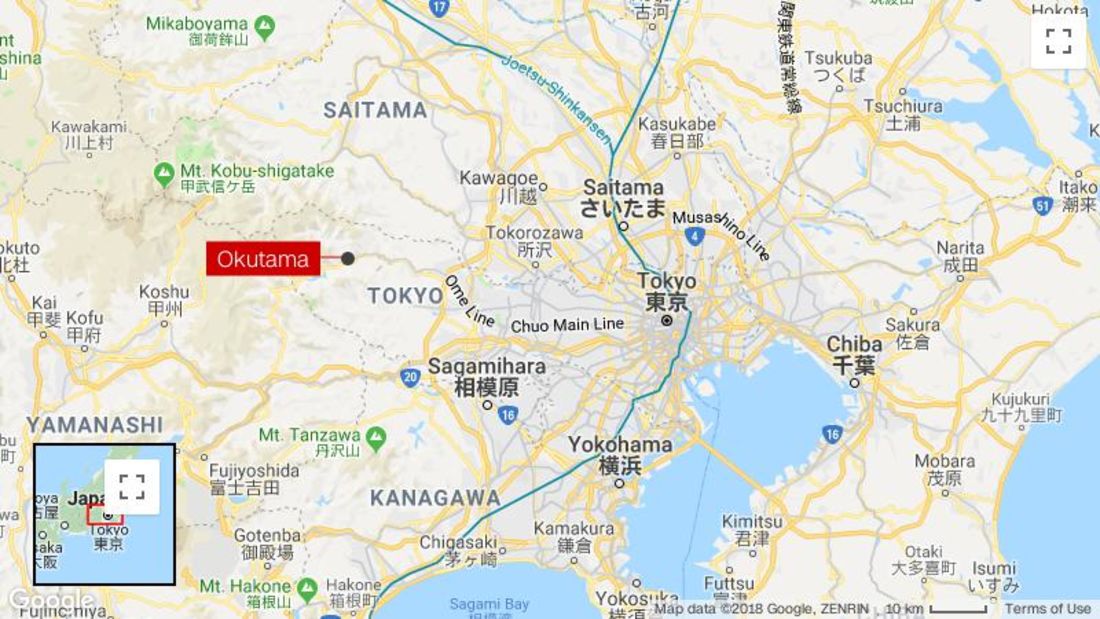
For example, Okutama subsidizes home repairs for new akiya residents, and encourages akiya owners to relinquish their vacant properties by offering up to $8,820 per 100 square meters (1,076 sq feet).
However, it stipulates that those who receive a free home or renovation assistancemust be aged under 40, or be in a couple with at least one child under 18-years-old and one partner aged under 50. Akiya applicants must also commit to settling in the town permanently and invest in upgrading second-hand homes.
But even giving away homes is tough in a country where people prefer new builds.
Second-hand homes
Niijima leads the way into a vacant, box-like house with a blue roof and white walls that was built 33 years ago. Though sturdy on the outside, the musty smell inside hints at the decade it has sat empty. The kitchen is in need of a makeover, and the tatami floor is faded.
"It will suit someone who likes DIY," Niijima said with a grin.
There are 3,000 homes in Okutama, and about 400 are vacant -- only half of which are believed to be salvageable. The rest are either too dilapidated or were built in areas at risk of landslides.
In the 20th century, Japan experienced two major population spikes: the first after World War II and the second during the economic explosion of the 1980s. Both created housing shortages which led to cheap, mass-produced homes that were quickly erected in densely populated towns and cities.
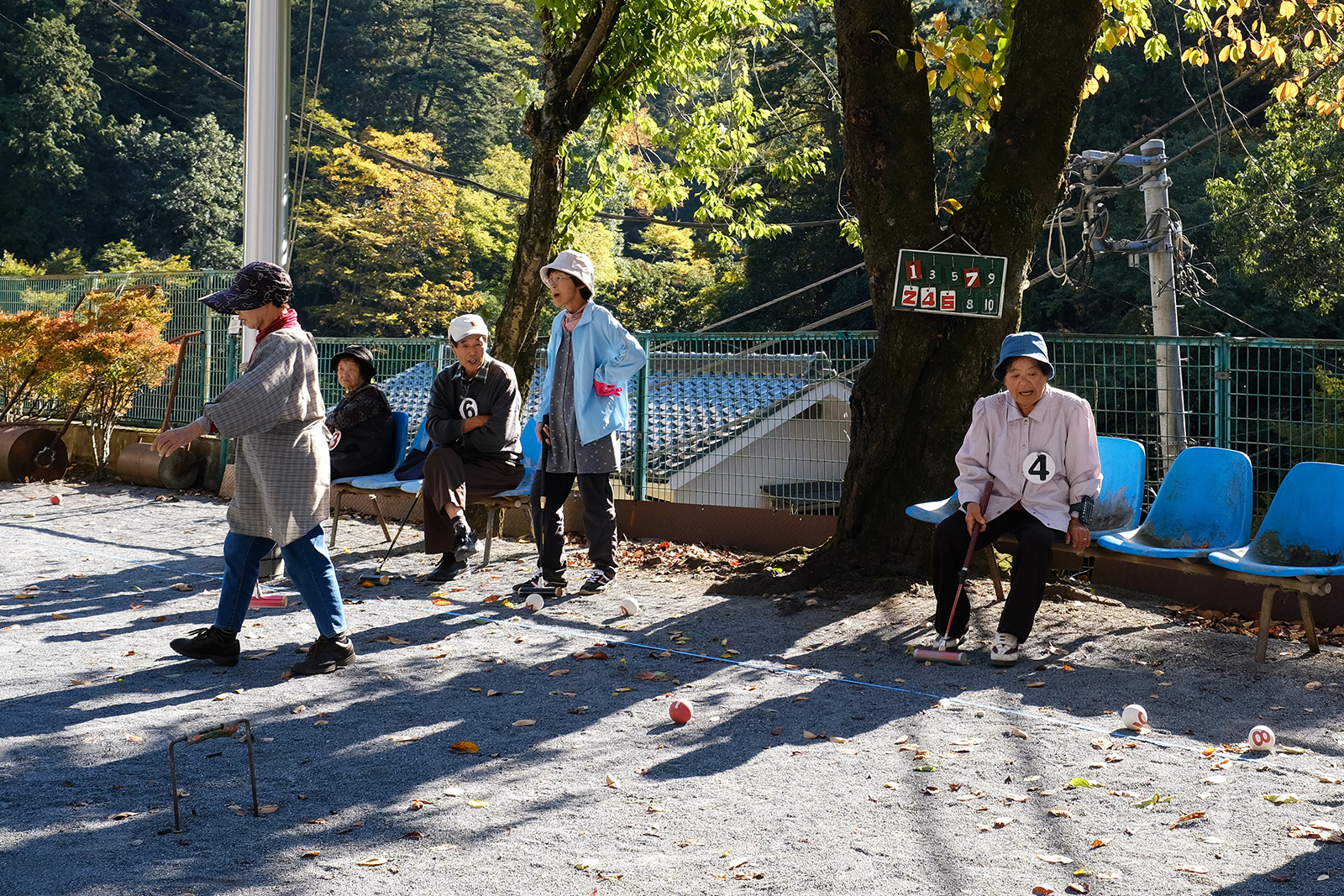
These Okutama locals regularly meet to play gate ball.
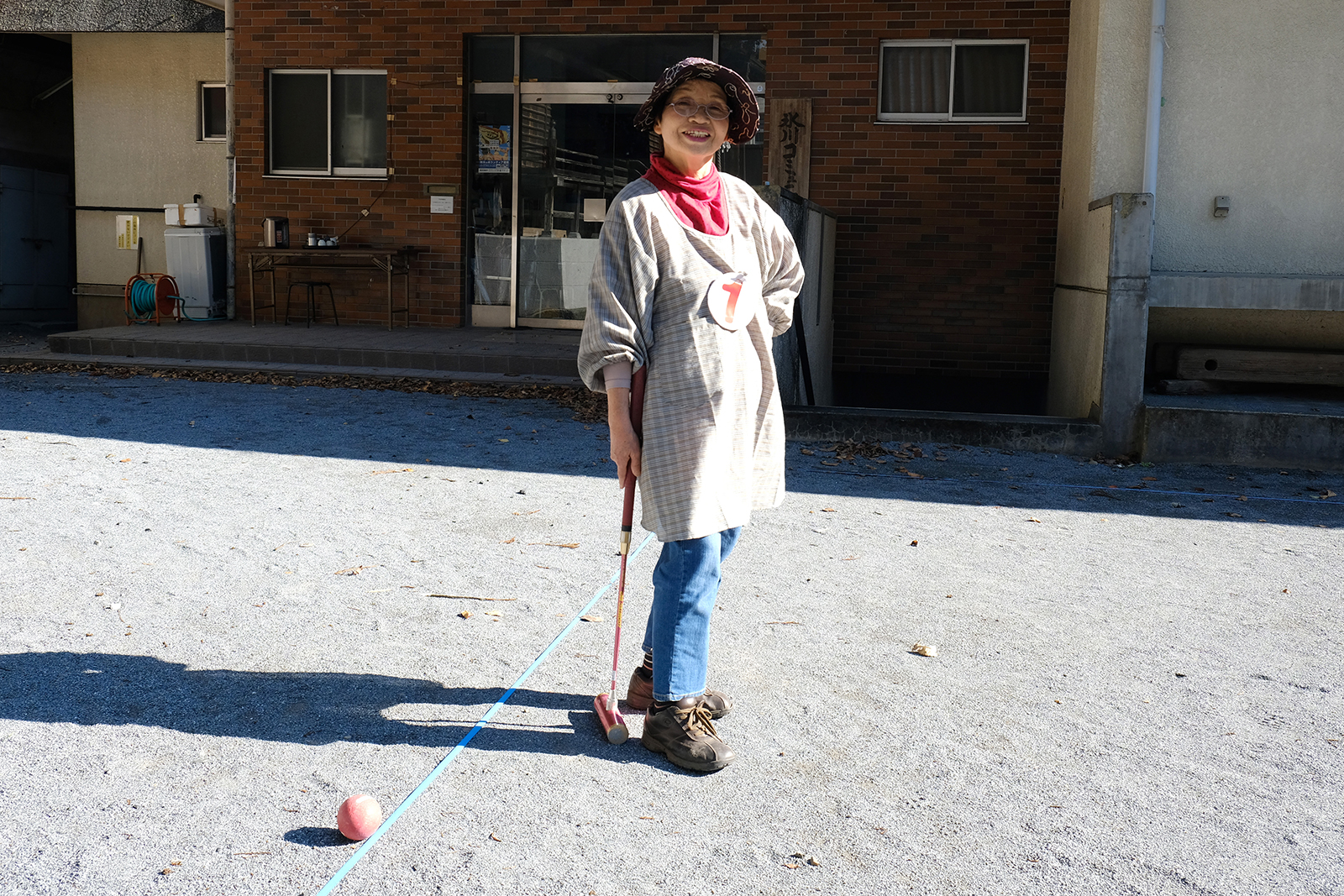
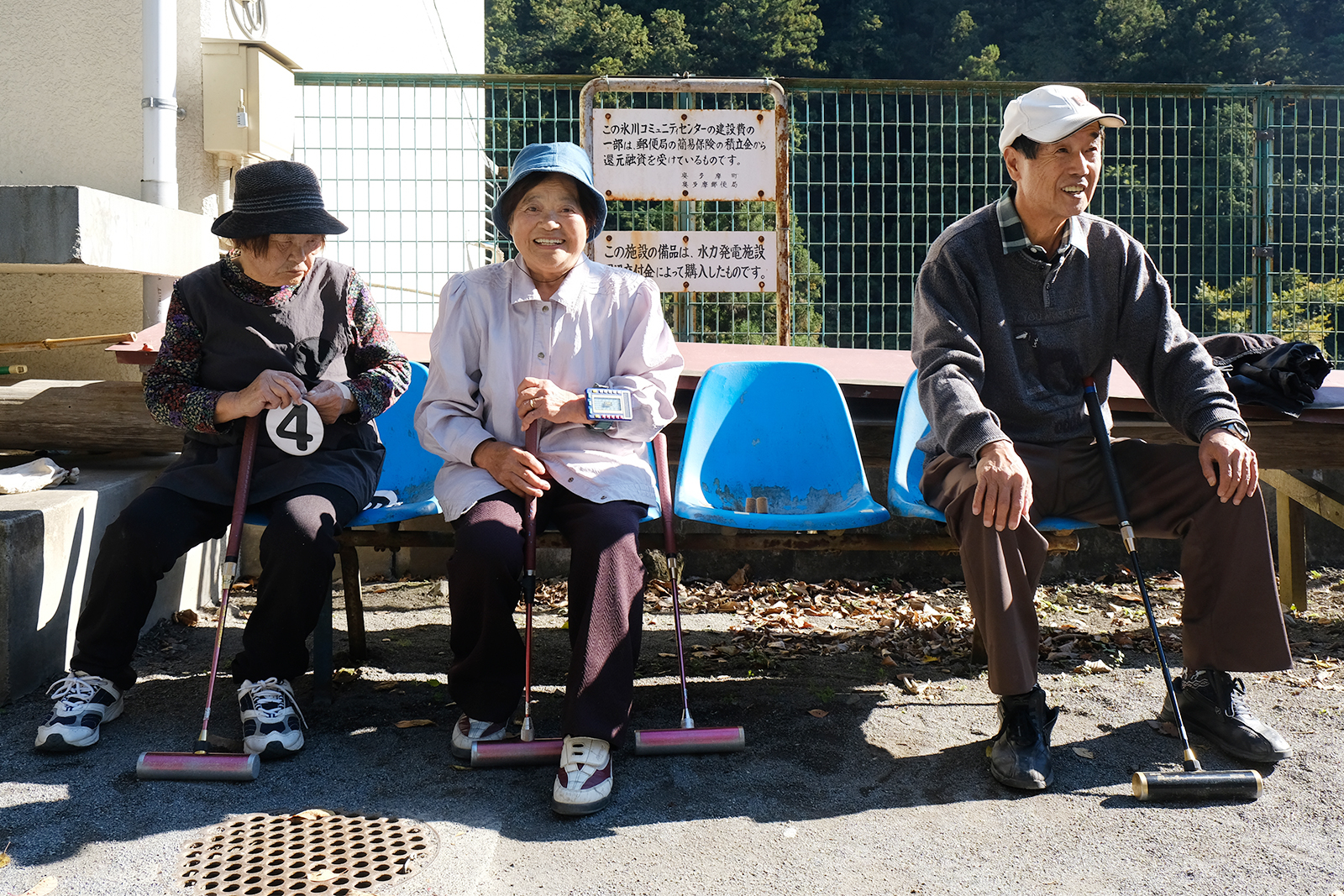
Many of those properties were poor quality, said Hidetaka Yoneyama, a senior researcher at the Fujitsu Research Institute. As a result, about 85% of people opt to buy new homes.
Japanese laws also don't help things.
In 2015, the government passed a law designed to penalize those who leave houses empty, in a bid to encourage them to either demolish or refurbish their properties. However, akiya owners are taxed more for empty plots of land than for having an empty property, according to real estate expert Toshihiko Yamamoto. This is a deterrent to razing a vacant home.
Urban planning regulations are also weak in Japan, said Chie Nozawa, a professor of architecture at Toyo University in Tokyo, meaning developers can keep building houses despite the glaring surplus.
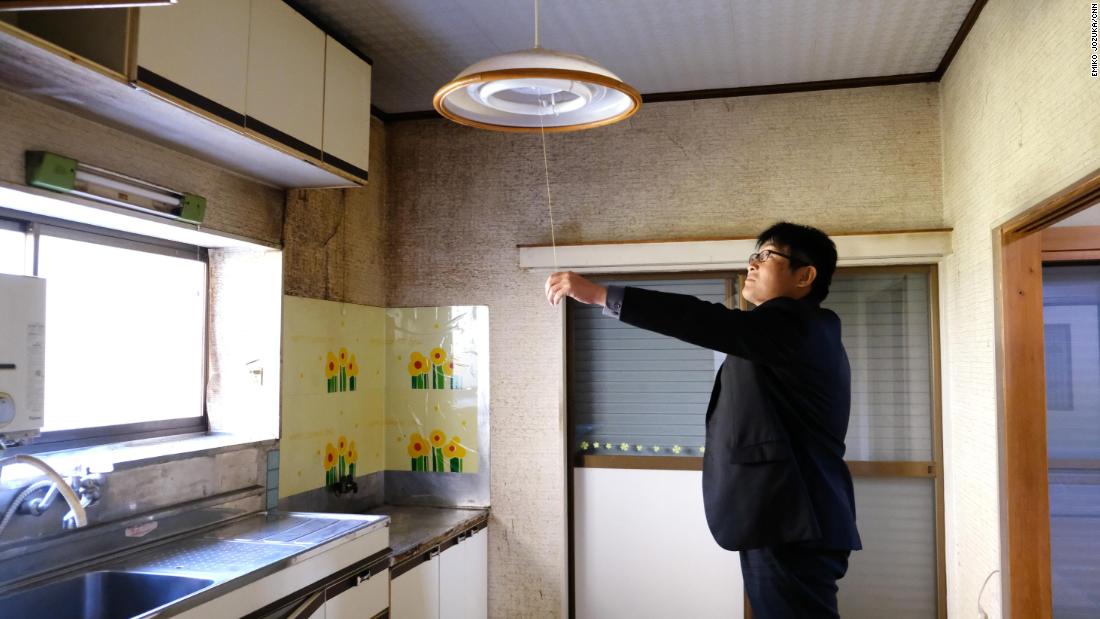
Kazutaka Niijima inside one of the akiya that Okutama will give away for free in 2019.
Making rural areas alluring
In Okutama, revitalization official Niijima has found families for nine vacant houses so far. They've come from places including New York and China -- the akiya scheme is not limited to Japanese citizens.
Filipino-Japanese couple Rosalie and Toshiuki Imabayashi, who live in central Tokyo with their six children, will move to the town in early 2019.
"It was getting too cramped for us in Tokyo and we liked that Okutama was within the same prefecture but surrounded by nature," Rosalie said.
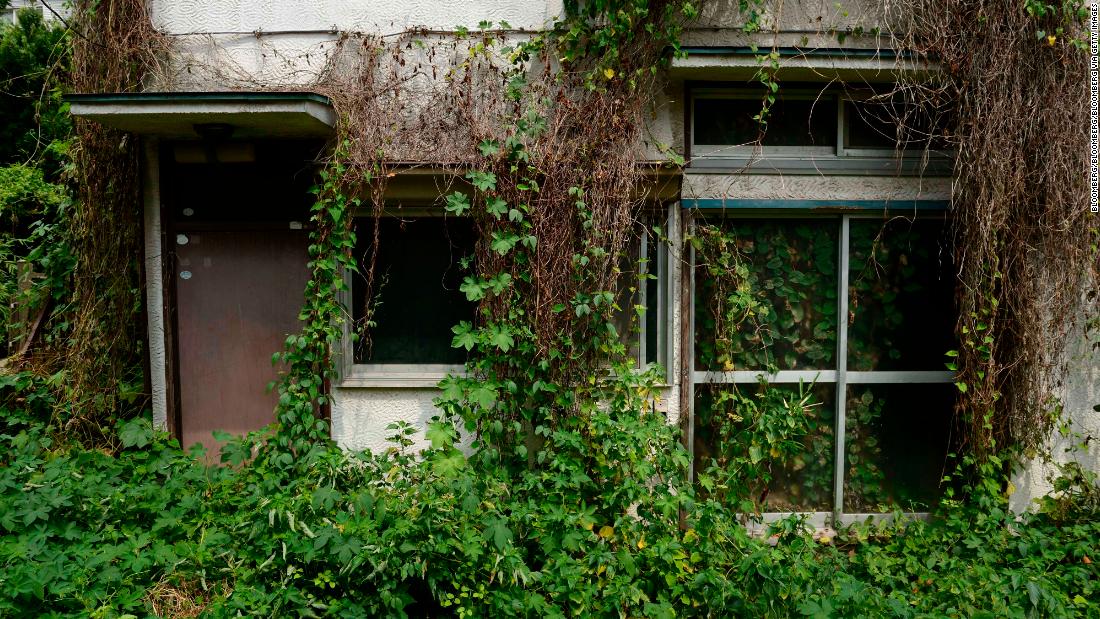
Overgrown vegetation surrounds a vacant house in the Yato area of Yokosuka City, Kanagawa Prefecture. Empty homes are an issue across the country.
